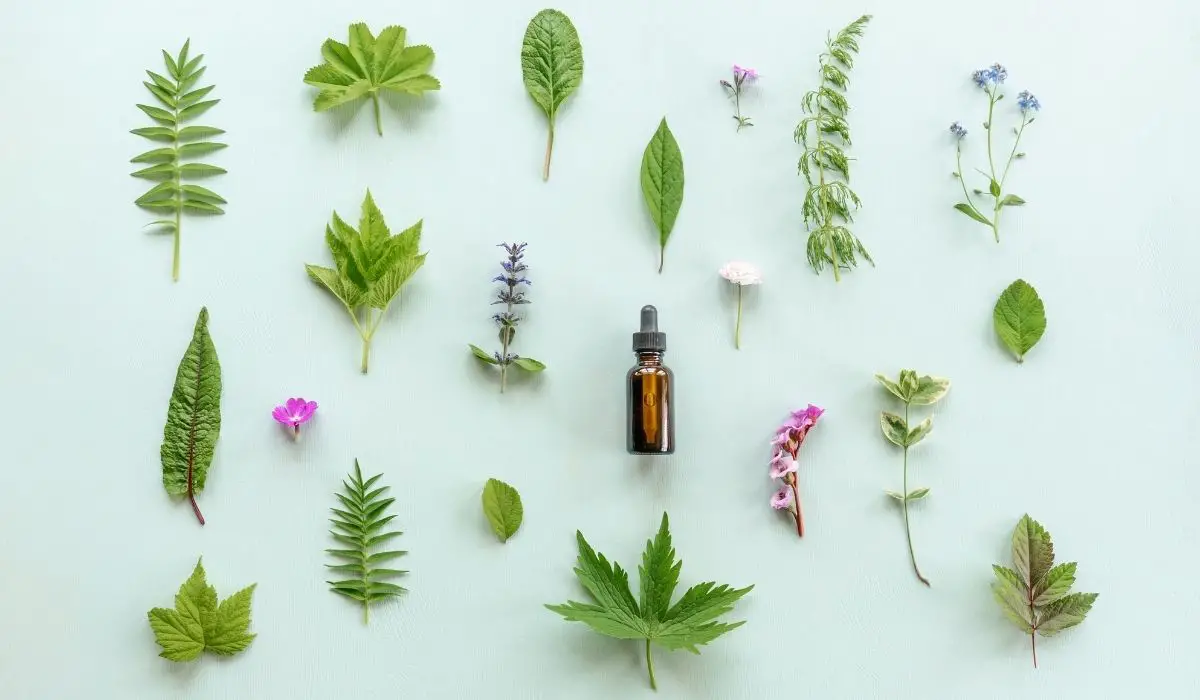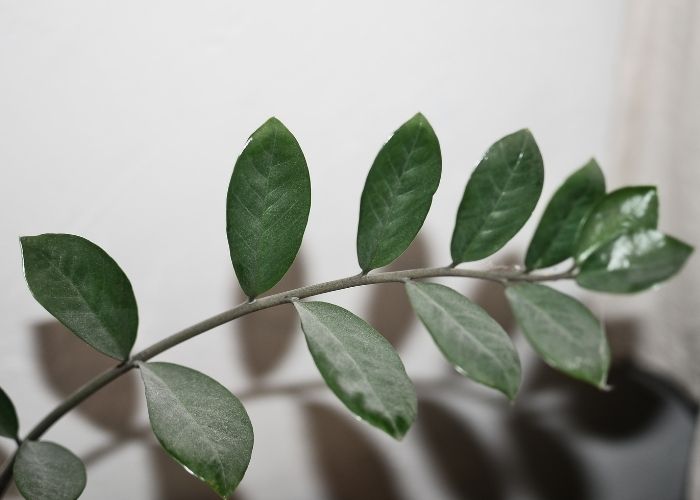Last Updated on March 31, 2022 by Fabiola L.
Have you heard about someone cleaning plant leaves with olive oil and wonder if it’s a good idea? Of course, plants are gorgeous on their own, but you’re eager to give their leaves a shiny boost. We understand your desire, but oils might not be the best choice.
Vegetable oils are rich in fatty acids, omega 3, and vitamins. All these ingredients work wonderfully for human health; they make our skin plump and shiny. But, can they do the same for plants?
Plants are designed to be self-sufficient. They feed from the soil and via photosynthesis. However, they can’t clean themselves. Accumulated dirt, dust, and debris can lead to a dull look and trouble feeding. Here’s what you can do.
Why You Need To Clean Your Plants
Plant leaves come in different sizes and shapes, but they all have one thing in common – a significant surface. Like all other surfaces in the home, household plants are prone to collecting dust. Outdoor plants can still gather debris, but they are often exposed to rain and wind, which help clean.
Your household plants need regular wiping or dusting. If the leaves are originally glossy or waxy, you’ll quickly notice when your cleaning is overdue. However, your choice of cleaning products can make it or break it. Leaves are one of the largest organs of the plant, and you should never use aggressive cleansers.
To keep your plants thriving, you might resort to cleaning plant leaves with olive oil, coconut oil, or even dish soap. Olive oil might seem like a harmless solution, but in fact, it can permanently damage your plant.
Olive Oil, Plant Leaves And The Outcomes
Olive oil is a product of vegetables, and you can get it in the most unrefined form. But even cold-pressed oil is still a bad idea. So here’s what an afternoon of cleaning plant leaves with olive oil can lead to.
Blocks The Pores Of The Leaves
Just like our skin, plant leaves have pores. They intake carbon dioxide through them and release oxygen back into the air. Excess sebum on the human skin leads to clogged pores. Extra oil on the plant leaves also leads to clogged pores. This disturbs the plant’s natural process of photosynthesis and leads to stunted growth.
Oily Leaves Accumulate Dust
Cleaning plant leaves with olive oil leaves an oil film on the leaves. Plants won’t absorb oil, so it stays on the surface. While it might give a glossy fresh look at the moment, it actually works as a magnet for dust. But when dust collects on dry leaves, removal is easy. Dust mixed with olive oil is a combination made in nightmares, so you’ll need a thorough scrubbing.
Insects And Pests Stick On The Leaves
Olive oil is tasty, not only for humans but also for insects. The smell is relatively strong, so it can draw in more insects and pests. However, the sticky, oily leaves can also work as a trap. So once an insect reaches the leaf, it can have a hard time moving.
In no time, you’ll notice small insects attached and ultimately die on your plant’s leaves.
Leaves Can Burn Or Wrinkle
Cleaning plant leaves with olive oil can successfully lead to frying your plant. How so? Olive oil doesn’t penetrate the leaves, so it remains on the surface for a long time.
Then, as sunlight hits your plant’s leaves, it heats the oil. Sunlight needs a long time to burn a plant’s leaves. But when they’re coated with oil, the process is immensely sped up.
Best Oil For Plants Leaves
We can agree that cleaning plant leaves with olive oil is a terrible idea. But how can you give your houseplants a little extra treatment? Here are some plant-friendly suggestions, but beware and don’t go overboard.
Neem Oil
Neem oil is a gardener’s best friend. Unfortunately, it has a bad reputation as the unclarified version has ingredients harmful to humans.
It works amazingly in bringing shine to your plant’s leaves and preventing pests. Follow the manufacturer’s instructions on how to dilute the oil. Don’t use it too often as it’s potent and can burn the leaves. Always handle it with gloves and a mask.
Horticultural Oil
Horticultural oil is a petroleum-based product that primarily kills and prevents pests. The petroleum, however, has a high shine (think of Vaseline) and can bring some life to your leaves. Unlike cleaning plant leaves with olive oil, these products are designed specifically for plant use so they won’t damage or burn the leaves.
Horticultural Oil Concentrate Insecticide/Pesticide Treatment
Essential Oils
Essential oils are often used as a natural remedy to repel bugs and pests. But did you know that they can also bring shine to your plant’s leaves? Combinations of rosemary, lemongrass, cloves, and cinnamon are safe for use on the plant’s leaves. You must dilute the essential oils in water, place the solution in a spray bottle and apply it all over the plant. Pure, undiluted essential oils can destroy your plant, just like cleaning plant leaves with olive oil.
What To Use Instead Of Oil For Plants Shine
Water is always your safest bet for cleaning your household plants. You can add a couple of tablespoons of milk or vinegar into the water-filled spray bottle. Both ingredients are beneficial for the plant.
Cleaning plant leaves with olive oil, coconut oil, or any other vegetable oil can damage the whole plant. Poping your plant in the shower and washing away the dust is a wiser choice. Then, just swipe it frequently with a hand duster.
Read more about Can You Clean Plant Leaves With Milk – Understand The Amazing Milk Leaves Cleaner And It’s Perks
Final Say: Avoid Cleaning Plant Leaves With Olive Oil
Olive oil is rich in fatty acids, vitamin E, A, and K, minerals like iron, calcium, and magnesium. These ingredients might push you into cleaning plant leaves with olive oil. However, olive oil is not a good idea for plant leaves. It speeds up the accumulation of dust on the leaves, can burn them, and attract more pests.
Instead, use neem oil, water with milk, or some essential oils. Regularly wash your plant’s leaves with water and dust them, so they can easily feed and release oxygen into the air.
Mary is a passionate gardener who loves spending her days getting her hands dirty and nurturing her plants. She‘s an avid reader of gardening magazines and is always looking for new ways to make her garden thrive. When not outside tending to her plants, Mary can be found inside reading up on the latest gardening trends, comparing notes with fellow gardeners, and finding the perfect pottery planter for her next planting project.




